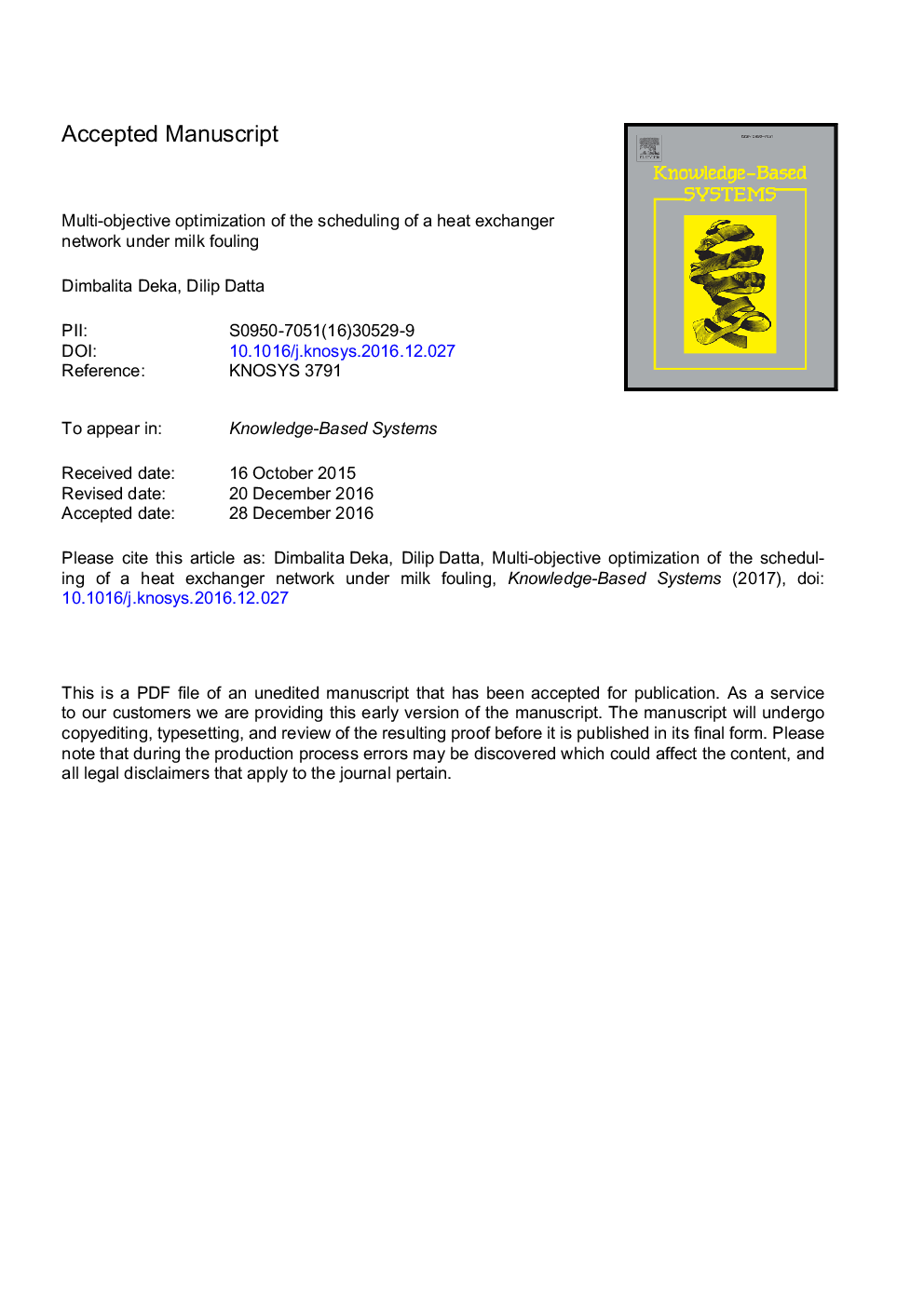| Article ID | Journal | Published Year | Pages | File Type |
|---|---|---|---|---|
| 4946266 | Knowledge-Based Systems | 2017 | 34 Pages |
Abstract
Heat treatment is an essential process in many production systems, which is generally carried out in a heat exchanger network (HEN). The major complication arisen in heat treatment is the fouling due to the deposition of unwanted particles on heat exchanger surfaces. The difficulties, faced in mitigating the fouling by improving the design of heat exchangers or controlling process parameters, necessitate periodic cleaning of the heat exchangers for reinstating their performances. Accordingly, a HEN is desired to schedule in a way to minimize the cleaning cost satisfying various process conditions. In such an attempt, three mixed-binary evolutionary algorithms (EAs) are investigated here for scheduling a HEN engaged in milk pasteurization, in which the growth rate of fouling is comparatively very high. The experimental results depict that the minimum cleaning cost, however, is accompanied with overheating of milk consuming excess energy and a higher outlet temperature of the heating medium (steam) causing excess requirement of steam. Therefore, the scheduling of the HEN is also handled as a multi-objective optimization problem for simultaneously minimizing the cleaning cost, overheating of milk and flow rate of steam, in which the EAs could maintain a better balance among the three conflicting objectives.
Keywords
Related Topics
Physical Sciences and Engineering
Computer Science
Artificial Intelligence
Authors
Dimbalita Deka, Dilip Datta,
